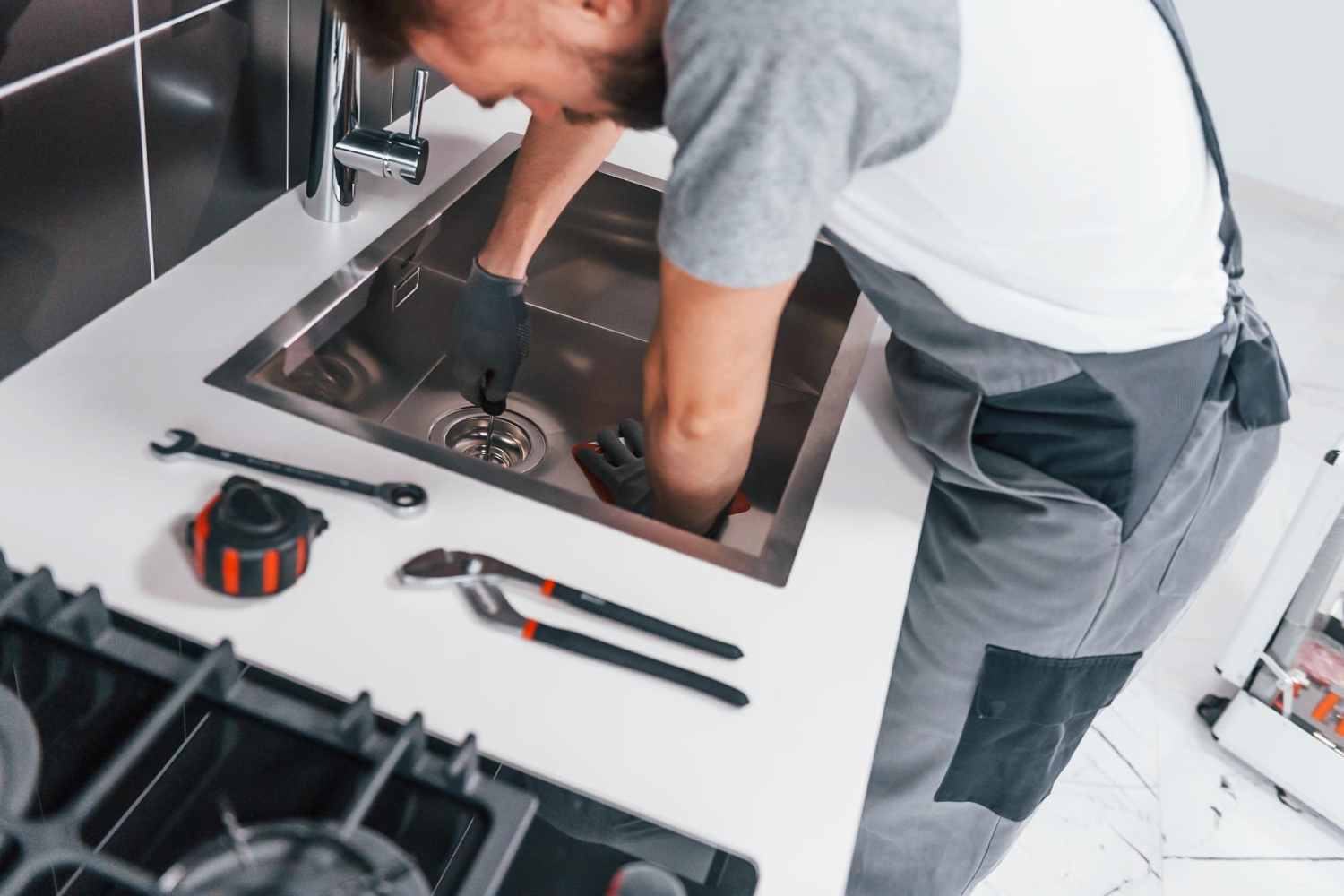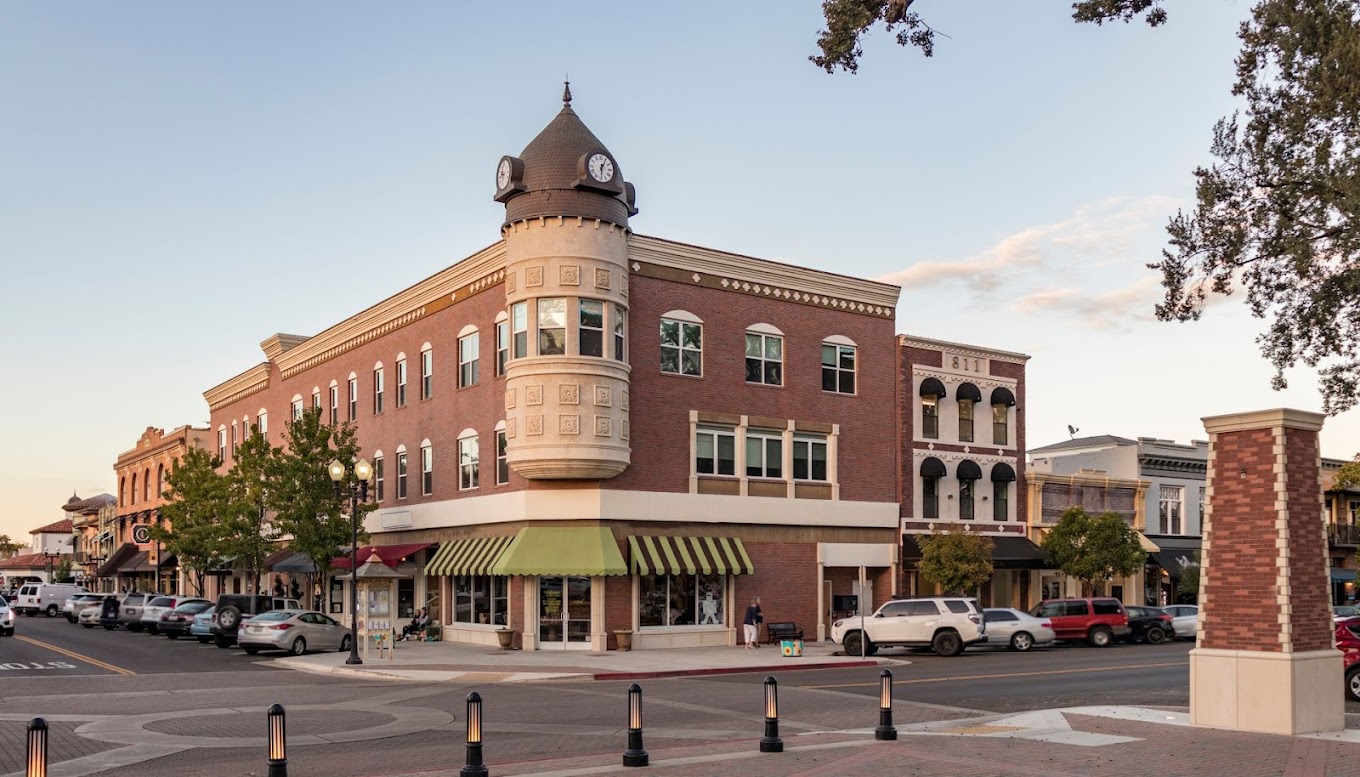When it comes to home maintenance, few problems escalate as quickly, or as expensively, as plumbing emergencies. One minute, your home is running smoothly.
Next, you’re dealing with burst pipes, clogged drains, or an overflowing toilet that threatens to soak floors and damage your property.
This guide is here to help you prepare for the unexpected. We’ll walk through the most common plumbing emergencies, from water heater failures to gas leaks and sump pump malfunctions, and show you how to act fast, minimize damage, and know when it’s time to call for professional help.
Whether you’ve already experienced a crisis or want to prevent the next one, understanding the warning signs and response steps can make all the difference, and potentially save you thousands in repairs.
This article will cover:
- Most common plumbing emergencies
- Urgent plumbing appliance failures
- Other serious and hidden plumbing issues
- Prevention and handling of plumbing emergencies
Most common plumbing emergencies
Plumbing problems don’t always give you a warning, but when they hit, they hit hard.
Below are the most common plumbing emergencies homeowners face, along with signs to watch for and immediate steps you can take to limit damage.
Burst pipes
Burst pipes are among the most serious plumbing emergencies, as they can release gallons of water in minutes, leading to extensive flooding and structural damage. These incidents often occur during winter, when water freezes and expands inside pipes, or as a result of aging, corroded plumbing.
If you experience a burst pipe:
- Turn off your main water valve immediately to stop the water flow
- Open faucets to drain any remaining water from the pipes
- Move valuable items away from the affected area
- Use towels or buckets to collect excess water
A burst pipe can damage walls, floors, and even electrical systems. The longer water flows, the worse the damage. Regular professional inspections can help identify weak points, especially before cold seasons.
That can help you avoid plumber repair costs and plan ahead for unexpected repairs.
Overflowing toilets
An overflowing toilet creates an immediate mess and can introduce harmful bacteria into your home. This common plumbing emergency often results from clogs either in the toilet itself or deeper within the plumbing system.
Warning signs of an impending toilet overflow include:
- Water rising higher than normal after flushing
- Gurgling sounds from the drain
- Slow drainage
When facing an overflowing toilet, your first move should be to stop the water flow. Remove the tank lid and press the flapper valve down. Then turn off the water supply valve behind the toilet. Avoid flushing again, as this typically worsens the blockage.
Even running toilets, though less dramatic, can waste gallons of water each day and significantly raise your utility bill. These issues are often linked to worn flapper valves or faulty fill mechanisms and shouldn’t be ignored.
Clogged drains and sinks
Clogged drains are a frustrating plumbing issue that disrupts your daily routine, and can signal deeper problems within your system. In kitchens, clogs usually form due to grease, food scraps, and oil buildup. In bathrooms, they’re more likely caused by hair, soap scum, and residue from toiletries.
Common clog locations include:
- Kitchen sink drains
- Bathroom sinks
- Shower and bathtub drains
- Floor drains
Minor clogs may respond to plungers or natural cleaning methods like baking soda and vinegar. However, chemical drain cleaners can be harsh on older pipes and are generally not recommended.
If you’re dealing with a drain that backs up regularly, it may point to a more serious blockage deeper in the plumbing. In these cases, professional tools such as augers or hydro-jetting can effectively clear the system without causing damage.
For stubborn or recurring clogs, consider scheduling a drain clearing service near Paso Robles to prevent further complications.
Sewage and sewer backups
Among the most hazardous plumbing emergencies, sewage backups pose serious health risks due to the presence of harmful bacteria and waste. These emergencies usually occur when a main sewer line is blocked or damaged, causing wastewater to flow back into your home.
Watch for these signs of a sewer backup:
- Multiple drains backing up at the same time
- Strong, foul odors coming from drains
- Gurgling toilets when using sinks
- Wastewater emerging from floor drains
Sewage backups can result from a variety of issues, such as tree root intrusion, collapsed or aging pipes, or inappropriate items being flushed. Because of the contamination involved, these situations require immediate attention from professional plumbers.
Avoid using any plumbing in your home during a sewage backup. Specialized tools and protective gear are needed to resolve these issues safely.
Urgent plumbing appliance failures
Some plumbing emergencies come from the systems we rely on every day. When appliances like water heaters, sump pumps, or dishwashers fail unexpectedly, they can cause major disruption, and in many cases, serious water damage.
These failures often happen with little warning and require immediate professional attention.
Water heater malfunctions
Water heater issues can quickly turn into emergencies. A common problem is when you suddenly have no hot water, which might indicate a failed heating element or thermostat.
If you notice water pooling around your water heater, this signals a serious leak that needs immediate attention. This leaking can lead to flooding and water damage if not addressed quickly.
Strange noises from your water heater, like popping or banging sounds, often indicate sediment buildup. This not only reduces efficiency but can lead to tank failure.
Rusty water coming from hot water taps suggests internal corrosion of your tank. When this happens, replacement is usually necessary as repairs are rarely effective.
Some of the warning signs of water heater failure are water discoloration, unusual noises, fluctuating water temperatures, visible leaks or moisture and complete loss of hot water.
Malfunctioning sump pump
A sump pump failure during heavy rain can lead to basement flooding and extensive property damage. Regular testing is essential, especially before rainy seasons.
If your sump pump runs constantly but doesn’t remove water effectively, it may be overwhelmed or have a clogged discharge line. This requires immediate attention to prevent flooding.
Strange noises from your sump pump might indicate worn bearings or impeller issues. These problems can cause complete failure when you need the pump most.
Power outages present a special challenge for sump pumps. We recommend having a battery backup system installed to ensure protection during storms when electricity often fails.
Common sump pump emergency fixes:
- Check and reset the circuit breaker
- Clear debris from the pit and intake
- Verify the discharge pipe isn’t frozen or blocked
- Test the float switch for proper operation
Leaking fixtures and appliances
Leaking appliances like washing machines or dishwashers can cause water damage quickly. Inspect hoses regularly for cracks or bulges to prevent sudden failures.
A leaking faucet might seem minor but can waste hundreds of gallons of water monthly. More importantly, it may indicate higher pressure issues in your plumbing system that could lead to pipe bursts.
Toilet leaks often go unnoticed until they cause floor damage or mold growth. If you hear running water or see moisture around the base, call a plumber immediately.
Emergency responses for leaking fixtures:
- Turn off water supply valves for the specific fixture
- Place buckets or towels to collect water
- Take photos for insurance purposes
- Contact emergency plumbing services if water cannot be contained
For major appliance leaks, knowing the location of your main water shut-off valve is important. This can prevent extensive damage while you wait for emergency plumbing repair services.
Other serious and hidden plumbing issues
Some plumbing emergencies aren’t immediately obvious until they cause significant damage. These hidden issues often require professional attention and can lead to costly repairs if not addressed quickly.
Gas leaks and safety concerns
Gas leaks are among the most dangerous plumbing emergencies a homeowner can face. If you smell gas inside your home, evacuate the area immediately and call your gas company from a safe location. Never try to locate the leak yourself or use any electrical devices nearby, as this could trigger a spark and lead to an explosion.
Signs of a gas leak can include:
- A strong, rotten egg smell (caused by added mercaptan)
- Hissing sounds near gas lines or connections
- Dead or dying plants located around buried gas lines
- Physical symptoms such as dizziness, headaches, or nausea
- Unexplained increases in your gas bill
Gas leaks demand immediate professional intervention. We recommend installing carbon monoxide detectors near sleeping areas and near fuel-burning appliances for an added layer of safety. These devices can detect dangerous levels of gas even before you smell it.
Frozen and broken pipes
Frozen pipes are a common issue during colder months, and one of the most damaging plumbing emergencies a homeowner can face. As water inside the pipe freezes, it expands, creating pressure that can crack or burst the pipe.
When the temperature rises again, the thawed water flows freely through the broken line, potentially releasing hundreds of gallons into your home within minutes.
The best way to handle this emergency is to avoid it. That means insulating exposed pipes in unheated areas, letting indoor faucets drip during extreme cold, and keeping cabinet doors open to allow warm air to circulate.
Maintaining a stable indoor temperature overnight can also make a difference.
If you suspect a pipe has frozen, shut off your main water valve immediately. Then, use a hairdryer, heating pad, or warm towels to thaw the pipe gradually, never with an open flame, which poses a serious fire risk. In the event of a pipe break, it’s critical to call a licensed plumber to assess the damage and make repairs.
Unexpected emergencies like this can be financially stressful. If you’re caught off guard, our plumbing financing plans can help cover urgent repairs without disrupting your household budget.
Low water pressure problems
Low water pressure can turn everyday tasks like showering or washing dishes into frustrating chores. While it might seem like a minor inconvenience at first, it often points to deeper plumbing issues that deserve immediate attention.
There are several potential causes behind this problem. In many homes, mineral buildup inside pipes or fixtures restricts water flow over time.
Leaks, especially hidden ones, can also divert water away from its intended path, lowering pressure throughout the house. In some cases, municipal supply problems or faulty pressure regulators are to blame.
If the issue affects only a specific fixture, try cleaning the aerator or showerhead to remove sediment. But if your entire home is experiencing pressure loss, it’s time to look deeper.
Check that your main shut-off valve is fully open, then monitor for signs of leaking pipes, wet spots on walls, or rising water bills, common clues that something is wrong.
Persistent low water pressure shouldn’t be ignored. It may signal an underlying leak, pipe corrosion, or blockages in your system. For an accurate diagnosis, it’s best to consult a plumbing professional who can assess the situation using specialized tools and recommend a long-term solution
Prevention and handling of plumbing emergencies
Taking quick action during plumbing emergencies can prevent costly water damage to your home. Regular maintenance helps avoid many common problems, but knowing when to call a professional is equally important.
When to call an emergency plumber
Not every issue demands immediate help, but certain plumbing emergencies do. If you’re facing burst pipes, sewage backups, or a gas leak, time is critical.
These situations pose health and structural risks that require urgent professional attention. If you lose water entirely throughout your home or can’t stop a leak by turning off local valves, don’t wait, contact an emergency plumber right away.
Quick action can significantly reduce damage and repair costs.
Homeowners with a plumbing maintenance plan often receive faster priority response during emergencies, which can make a real difference in how much damage is ultimately done.
Immediate actions during a plumbing crisis
When disaster strikes, knowing what to do before your plumber arrives helps contain the situation.
Start by shutting off your main water valve to stop the flow and minimize damage. If your water heater is running, switch it off as well, especially after closing the water supply, to prevent heat buildup and potential damage to the unit.
Remove valuables and electronics from the affected area, and use towels or buckets to keep water from spreading. It’s a smart idea to document visible damage with your phone for insurance purposes.
Minor leaks might be temporarily controlled with plumber’s tape or clamps, but they still need professional repair as soon as possible.
If you’re dealing with an issue related to winter weather, like frozen pipes, avoid using open flames to thaw them. Instead, gradually warm the area with a hairdryer or heating pad.
For pipes that have already burst, shut off your water immediately and reach out for frozen pipe repair service.
Routine plumbing maintenance
Regular maintenance is your best defense against plumbing emergencies. Staying ahead of potential issues with a consistent routine helps reduce unexpected breakdowns and costly repairs. We recommend these preventive measures:
Monthly Tasks
Check for leaks under sinks and around toilets. Even a small drip can signal a bigger issue if left unaddressed.
Test your water pressure to ensure it’s within a healthy range, unusually low pressure could indicate hidden leaks or mineral buildup. Run water in any rarely used fixtures, like guest bathrooms, to keep traps from drying out and releasing sewer gas.
Quarterly Tasks
Clean shower heads and faucet aerators to remove mineral deposits that may affect flow. Inspect any visible pipes for signs of corrosion or moisture, especially in areas like basements and under cabinets.
It’s also wise to test all shut-off valves throughout your home to ensure they operate smoothly in case you need to act quickly during a plumbing emergency.
Annual Tasks
Have a professional plumber inspect your water heater to check for sediment buildup and ensure it’s functioning efficiently. Clean out sink and shower drains to prevent clog formation, especially in high-use bathrooms.
And take time to inspect washing machine hoses for bulges or cracks, as these are common sources of sudden leaks and water damage.
Never pour fats, oils, or grease down the drain, as they solidify and contribute to clogged drains.
Similarly, avoid flushing “flushable” wipes, which often don’t break down properly. Installing simple mesh screens on shower and sink drains helps trap hair and debris before they can lead to plumbing repairs.
Conclusion
Plumbing emergencies are never convenient, and often strike when you least expect them. From burst pipes and clogged drains to water heater failures and gas leaks, these incidents can cause serious damage, disrupt your daily life, and lead to expensive repairs if not addressed quickly.
But the good news is: with the right knowledge and proactive planning, most emergencies are either preventable or manageable with minimal stress.
Throughout this guide, we’ve walked through the most common types of plumbing emergencies, including how to spot warning signs and what steps to take when disaster strikes.
We’ve also emphasized the importance of routine plumbing maintenance, which remains your first line of defense against unexpected breakdowns. Whether it’s checking for leaks, inspecting appliance hoses, or scheduling annual water heater tune-ups, these small tasks can significantly extend the life of your plumbing system.
It’s also clear that having a trusted, local plumbing partner matters. Working with professionals who offer emergency plumbing services, transparent pricing, and access to maintenance plans ensures that when a problem arises, you’re not scrambling to find help, you already have it.










